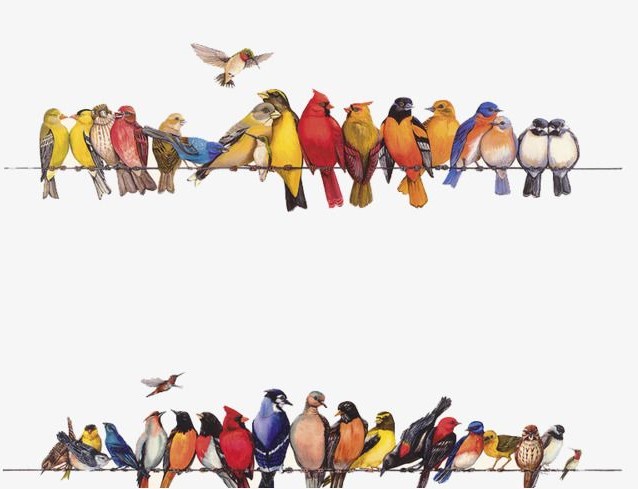
Bird surveys carried out by an independent consultant every year in spring/summer and again in winter have been in place on the Streatham Campus for the last 16 years and on St Luke’s Campus for the past 11 years.
The results of the spring/summer birds surveys on our campuses during two visits – early visit in March 2024 and late visit in May 2024 – have been received and we wanted to share the highlights.
Streatham Campus
A total of 1,601 birds were recorded during the visits, an 11.3% increase in the total of 1,439 birds recorded in 2023.
749 of these birds are on the Red and Amber lists.
The top five species recorded were:
- Wood Pigeon (Amber list)
- Robin (Green list)
- Wren (Amber list)
- Blackbird (Green list)
- Herring Gull (Red list)
Birds of Conservation 5 (BOCC5) was published on 1st December 2021 and is the latest assessment of the status of all the bird species that regularly occur in the UK. This assessment indicates that 70 species are of the highest conservation concern and have been placed on the Red list, 103 species have been placed on the Amber list and 72 species on the Green list. The majority of the Red list species are there because of a severe decline in numbers in recent decades, their numbers remain below historical levels or are under threat of global extinction.
A total of 749 (14 species) Birds of Conservation Concern 5 (BOCC5) Red list and Amber list birds were recorded:
Red List
- Greenfinch
- Herring Gull
- House Sparrow

Amber List
- Bullfinch
- Dunnock
- Mallard
- Moorhen
- Redstart
- Rook
- Sedge Warbler
- Song Thrush
- Stock Dove
- Wood Pigeon
- Wren
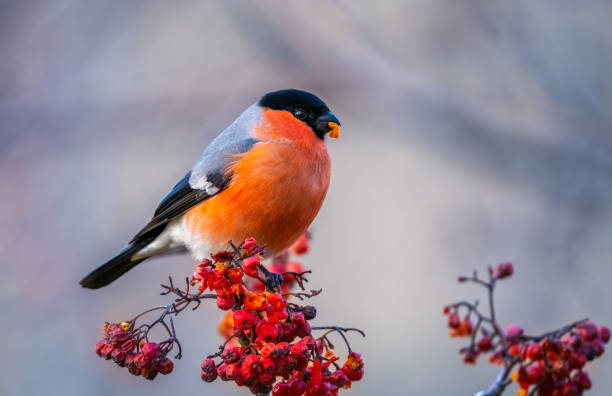
Interesting Observation
On 3rd May 2024, a Redstart was heard singing from the top of a large Conifer tree close to Bovey House, Duryard. The Restart is a new species for the Streatham Campus bird surveys.
The adult male Redstart is an attractive bird with a deep orange breast, black throat, white forehead and a grey crown and back. A summer visitor to Britain and Ireland, the Restart arrives in April and departs for its wintering grounds in sub-Saharan Africa throughout the months of September and October.
Choosing to breed in deciduous or mixed woodland, gardens and parks, the area around Duryard and the Valley Park seems to be an ideal breeding location. This particular male Redstart may have eventually attracted a female to the area and bred somewhere close by, or he may well have failed and chose to move on to pastures new.
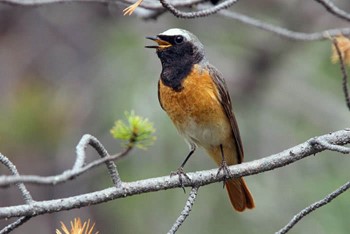
Interesting Observation
On 3rd May 2024 a Sedge Warbler was heard singing from within thick vegetation behind the glasshouses at the Estate Services Centre.
This is the third record for this species since the survey began in 2008; the other two records were on 17th May 2014 and 18th May 2017. The Sedge Warbler winters in sub-Saharan Africa and returns to the UK in the spring to breed. It is widespread across the country and prefers a habitat of reed beds or damp meadows. Sedge Warblers can often be found in the scrub areas along the Exeter Ship Canal or on the fringes of Dartmoor, where there are wet meadows with Juncus rush and stands of Willow, which can be used as song posts. It is often confused with the Reed Warbler, which has a similar song and is also found in reed beds.
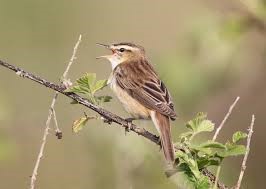
Interesting Observation
On the 31st March 2014 a Garden Warbler was heard singing from a well vegetated hedgerow along Belvedere Road and on the following day, 1st April 2014, a second bird was recorded singing from a thick stand of brambles in the Lower Hoopern Valley. Previous records for this warbler were on 9th May 2009, 13th May 2015 and 7th May 2023. A fairly plain bird, the warbler has olive brown plumage and no obvious features, but it does possess a beautiful rich song.
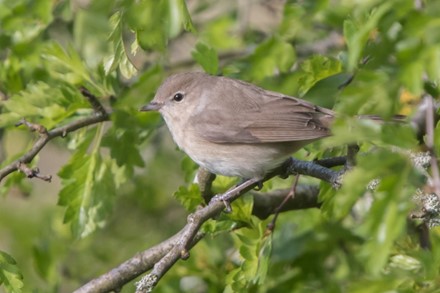
St Luke’s Campus
A total of 228 birds were recorded during the visits, a 3.4% decrease in the total of 236 birds recorded in 2023.
The top five species recorded were:
- Wood Pigeon (Amber list)
- House Sparrow (Red list)
- Herring Gull (Red list)
- Robin (Green list)
- Blackbird (Green list)
